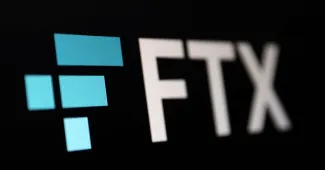
FTX......What happened?
In case you have been busy over the past few weeks, you may have missed one of the largest corporate collapses since Enron. FTX announced it was filing for bankruptcy on November 11th.
What is FTX?
FTX is an acronym for Futures Exchange. Before its recent implosion, FTX was the second largest cryptocurrency exchange with Binance being the largest. FTX allowed individuals to buy, sell, and enter into derivative contracts for cryptocurrency coins and tokens. FTX was based in the Bahamas where it offered trading services that were not authorized in the United States. FTX was valued at $32 billion in January 2022 following their Series C venture capital funding round.
Who is SBF?
SBF is the acronym for Sam Bankman-Fried. SBF was the founder and former CEO of FTX. He graduated from the Massachusetts Institute of Technology (MIT) in 2014 after earning a degree in physics and a minor in mathematics. SBF founded Alameda Research in 2017 and FTX in 2019. Alameda was a quantitative trading firm (hedge fund) that made money by arbitraging the price of cryptocurrencies. In simple terms, Almeda would take advantage of pricing disparities (arbitrage) by buying cryptocurrencies in one part of the world and reselling them in another part and pocketing the difference (profit). SBF resigned from FTX on November 11th and is now facing investigations from numerous regulatory agencies.
How did FTX unravel?
In early November, the crypto publication CoinDesk reported on a leaked balance sheet that showed Alameda Research was on shaky ground. This led to a “run on the bank” or withdrawals from FTX. Since there was no regulatory oversight of FTX, there were no indications in advance that FTX was on the precipice of financial collapse. With FTX unable to meet redemptions of client assets, they were forced into bankruptcy with hundreds of thousands of clients likely impacted.
Who were the celebrity endorsers of FTX?
Celebrity endorsers included the following: Larry David, Steph Curry, Tom Brady, Gisele Bundchen, Shaquille O’Neal, and Naomi Osaka. In addition to celebrity endorsers, FTX was the sponsor of the arena where the NBA’s Miami Heat play basketball and the football stadium at the University of California Berkeley. Larry David was actually featured in the following ad for FTX: https://www.youtube.com/watch?v=BH5-rSxilxo
Is there financial risk for these celebrity endorsers?
Yes. Kim Kardashian was recently assessed a $1.26 million penalty from the Federal Trade Commission for promoting crypto sold by EthereumMax without disclosing she also received payment for the endorsement. Attorneys for those impacted by the FTX collapse have named the celebrity endorsers in their recent class action lawsuit. Even if the celebrities are not liable for losses, they are likely to incur hefty legal fees associated with defending themselves from lawsuits.
Who else was duped by SBF?
On June 22nd, CNBC announcer Jim Cramer deemed SBF as the “new JP Morgan.” Cramer was referring to the fact that SBF was extending credit lines to save crypto institutions. Neither Cramer nor other individuals at that time knew that SBF was merely protecting his own self-interests. In addition, a number of politicians accepted financial support from SBF who in the past was commended for his “effective altruism,” a movement dedicated to “doing the most good.” Gary Gensler, Chairman of the Securities and Exchange Commissioner, previously taught a class on blockchain technology at MIT and met with SBF on March 29th. Mr. Gensler will now be tasked with explaining the future actions the SEC will now take to protect investors moving forward.
What happens now?
According to Forbes, the following institutions have written down their investments to zero:
- Paradigm - $215 million
- Temasek - $205 million (Temasek is the investment firm owned by Singapore’s government)
- Ontario Teachers’ pension fund - $80 million
- Sequoia Capital - $200 million
While these institutions can weather the loss of their investment, there are estimated to be hundreds of thousands of investors who may have lost money following the collapse of FTX. NPR reported that $8 billion has gone missing and the only two explanations are that the funds were either stolen or were traded in speculative investments (cryptocurrencies) and are now gone. While the details will be uncovered over the coming months, we would have to believe that it is a combination of both.
What are the lessons learned?
Following the Enron collapse, the government limited the amount of funds an employee could invest in the stock of his or her company. This was to prevent folks from losing their jobs and their entire net worth in an instant. The lesson learned from the collapse of FTX is to never put all your eggs in a single basket, especially those that are unregulated. Since cryptocurrencies would be deemed “speculative”, we always recommend that investors limit their exposure to similar investments to funds that they are willing to lose, and to an amount that would not impact their long-term financial goals and objectives.
Are you impacted by the FTX implosion?
Since we did not invest in FTX, you are not impacted by their recent bankruptcy. However, we are closing monitor developments related to this story to ensure that any impact via your mutual funds, exchange traded funds and/or market linked notes will be virtually nonexistent. If anything should change in the future, we will let you know.
If you have any questions related to this memo or your portfolio, please do not hesitate to call or email us.
We hope you, your friends, and family members all have a Happy Thanksgiving.
Sources: Wall St. Journal, CNBC, Hollywood Reporter, Coindesk, NY Times, Investopedia

